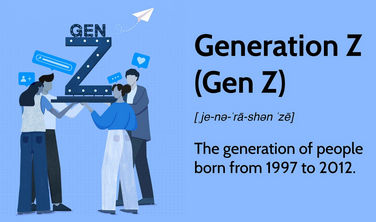|
 |
л…ёл № мқёкө¬, лҠҷм–ҙк°ҖлҠ” мӮ¬нҡҢмқҳ кІҪм ңм„ұмһҘ |
|
| м „ м„ёкі„ кіікіім—җм„ң мқёкө¬ л…ёл №нҷ”к°Җ л№ лҘҙкІҢ 진н–үлҗҳкі мһҲлӢӨ. нҶөл…җмғҒ мқёкө¬ л…ёл №нҷ”лҠ” кІҪм ң м„ұмһҘм—җ л¶Җм •м Ғ мҳҒн–Ҙмқ„ лҜём№ҳлҠ” кІғмңјлЎң м•Ңл Өм ё мһҲлӢӨ. к·ёлҹ¬лӮҳ к·ёкІғмқҖ кіјкұ°мқҳ нҶөл…җмқјлҝҗ, 4м°Ё мӮ°м—…нҳҒлӘ…мқҳ мӢңлҢҖм—җлҠ” л§һм§Җ м•Ҡмқ„ мҲҳлҸ„ мһҲлӢӨ. мқёкіөм§ҖлҠҘ, мһҗлҸҷнҷ”, кұҙк°•н•ң л…ёл № мқёкө¬, нҸүк· мҲҳлӘ… м—°мһҘ л“ұ нҶөл…җм—җ л°ҳн•ҳлҠ” кІ°кіјлҘј лӮј мҲҳ мһҲлҠ” мҡ”мҶҢл“Өмқҙ л“ұмһҘн•ҳкі мһҲлӢӨ. |
|
|
 |
[RH] м»Өн”јмҷҖ мҡ°мң к°Җ л©ҙм—ӯм„ёнҸ¬лҘј к°• |
|
| вҖҳлҶҚм—… л°Ҹ мӢқн’Ҳ нҷ”н•ҷ м Җл„җвҖҷм—җ л°ңн‘ңлҗң мң кҙҖ м—°кө¬м—җм„ң м—°кө¬мһҗл“ӨмқҖ нҸҙлҰ¬нҺҳлҶҖмқҙ мҡ°мң мҷҖ н•Ёк»ҳ н•ң м»Өн”ј мқҢлЈҢ лӮҙ лӢЁл°ұм§Ҳкіј кІ°н•©н•ңлӢӨлҠ” кІғмқ„ мһ…мҰқн–ҲлӢӨ. м»Өн”ј мӣҗл‘җм—җлҠ” нҸҙлҰ¬нҺҳлҶҖмқҙ н’Қл¶Җн•ҳкі мҡ°мң м—җлҠ” лӢЁл°ұм§Ҳмқҙ н’Қл¶Җн•ҳкё° л•Ңл¬ём—җ мқҙ кІ°кіјлҠ” л§Өмҡ° мӨ‘мҡ”н•ҳлӢӨ. |
|
|
 |
кёҖлЎңлІҢ кіөкёүл§қмқҳ лҢҖм „нҷҳ: м ңмЎ°м—… мӨ‘мӢ¬ |
|
| мҳӨлһ«лҸҷм•Ҳ кёҖлЎңлІҢ кіөкёүл§қмқҖ вҖҳм Җ비мҡ©В·кі мҶҚвҖҷмқҙлқјлҠ” мӣҗм№ҷ мң„м—җм„ң мһ‘лҸҷн•ҙмҷ”лӢӨ. к·ёлҹ¬лӮҳ кё°нӣ„ мң„кё°к°Җ к°ҖмҶҚнҷ”лҗҳкі көӯм ң мӮ¬нҡҢк°Җ нғ„мҶҢ л°°м¶ң к·ңм ңлҘј к°•нҷ”н•ҳл©ҙм„ң мқҙм ң кіөкёүл§қмқҖ мғҲлЎңмҡҙ мғқмЎҙ мЎ°кұҙм—җ м§Ғл©ҙн•ҳкІҢ лҗҳм—ҲлӢӨ. лӢЁмҲңнһҲ мӢёкі л№ лҘҙкІҢ мғқмӮ°н•ҳлҠ” кІғл§ҢмңјлЎңлҠ” мӢңмһҘм—җ м ‘к·јн• мҲҳ м—ҶлҠ” мӢңлҢҖк°Җ лҗң кІғмқҙлӢӨ. |
|
|
 |
м „лЎҖ м—ҶлҠ” вҖҳм„ёкі„ мқёкө¬ к°җмҶҢвҖҷ нҳ„мғҒ |
|
| мҳӨлҠҳлӮ , мқёкө¬ кіјмһүм—җ лҢҖн•ҙ кұұм •н•ҳкі мһҲлҠ” мӮ¬лһҢл“ӨмқҖ к°ҖмһҘ л¬ҙм§Җн•ң мӮ¬лһҢл“Өм—җ мҶҚн•ңлӢӨ. нҳ„мһ¬, мҡ°лҰ¬ л¬ёлӘ…мқ„ мң„нҳ‘н•ҳкі мһҲлҠ” кІғмқҖ вҖҳмқёкө¬ к°җмҶҢвҖҷ нҸӯнғ„мқҙлӢӨ. мҲҳмӢӯ л…„ л§Ңм—җ м–ҙл–»кІҢ мқҙлҹ° мқјмқҙ мқјм–ҙлӮҳкІҢ лҗҳм—Ҳмқ„к№Ң? мқҙлҠ” м–ҙл–Ө мқҳлҜёк°Җ мһҲмқ„к№Ң? |
|
|
 |
Zм„ёлҢҖмҷҖмқҳ кіөмЎҙкіј лІҲмҳҒ |
|
| нҷҳкІҪм Ғ мғҒнҷ©мқҙ м„ңлЎң лӢӨлҘҙкё° л•Ңл¬ём—җ лӘЁл“ м„ёлҢҖлҠ” н–үлҸҷм—җ к·јліём Ғ мҳҒн–Ҙмқ„ лҜём№ҳлҠ” кі мң н•ң 집лӢЁ мӢ¬лҰ¬м Ғ нҠ№м„ұмқ„ м§ҖлӢҲкі мһҲлӢӨ. л°Җл ҲлӢҲм–ј м„ёлҢҖмҷҖ мЈјлЁё(Zoomers), мҰү Zм„ёлҢҖлҸ„ л§Ҳм°¬к°Җм§ҖлӢӨ. н•ҳм§Җл§Ң мқҙ мғҲлЎңмҡҙ м„ёлҢҖлҠ” кё°м„ұм„ёлҢҖк°Җ кө¬м„ұн•ң кө¬мЎ° лӮҙм—җм„ң м—¬лҹ¬ м–ҙл ӨмӣҖмқ„ кІӘкі мһҲлӢӨ. к°Ҳл“ұлҸ„ мғҒмЎҙн•ҳкі мһҲлӢӨ. мқҙ л¬ём ңлҠ” м–ҙл””м—җ мҳҒн–Ҙмқ„ лҜём№ҳкІҢ лҗ к№Ң? м„ёлҢҖк°„мқҳ кіөмЎҙкіј лІҲмҳҒмқ„ мң„н•ҙ н•„мҡ”н•ң кІғмқҖ л¬ҙм—Үмқјк№Ң? |
|
|






 [144]ұЗ
[144]ұЗ 




